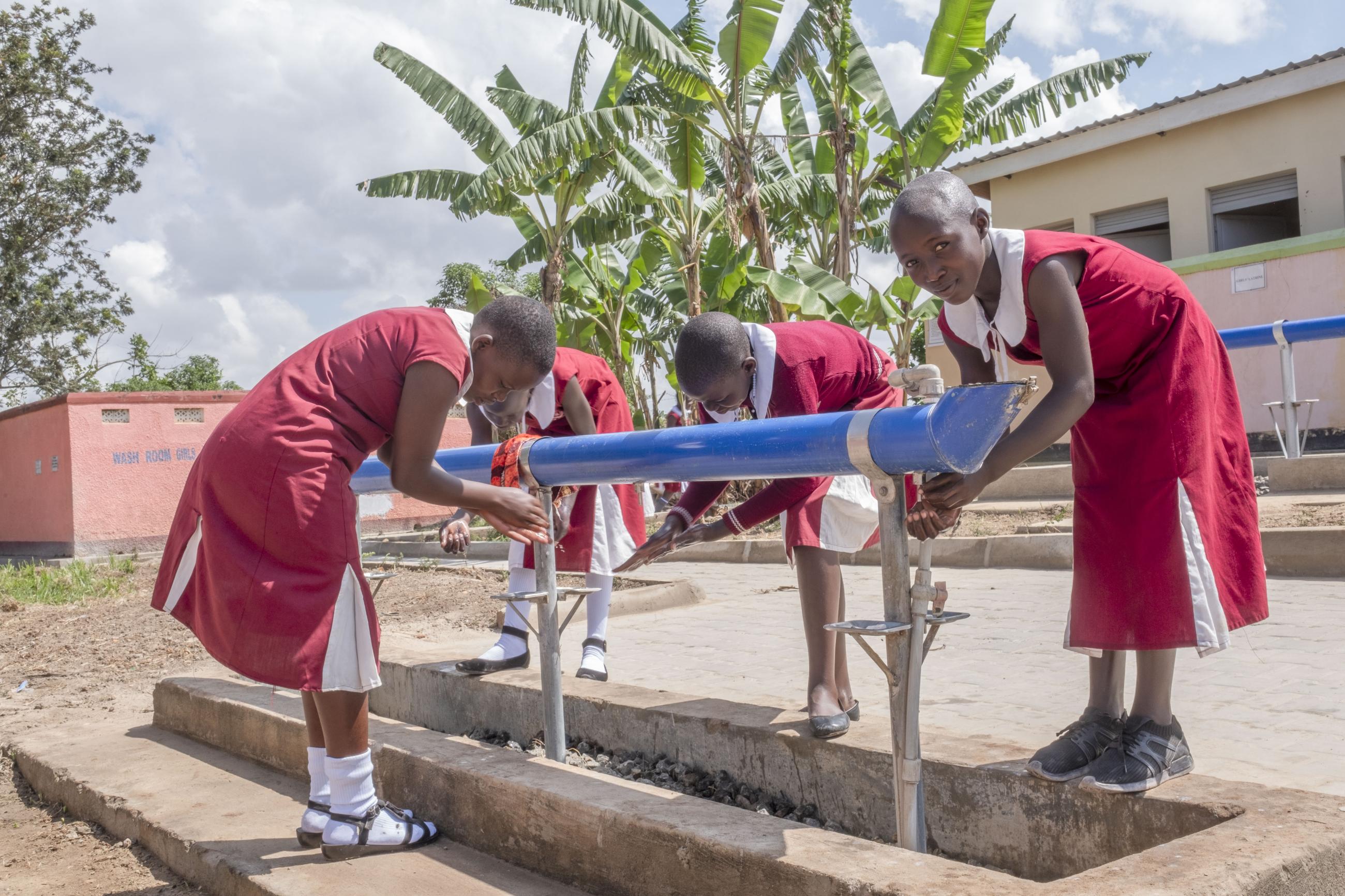Sanitation for Millions is a global programme improving access to safe sanitation and hygiene, commissioned by the German Federal Ministry for Economic Cooperation and Development (BMZ). The Bill & Melinda Gates Foundation, the UK solidarity fund Water Unite, the Hungarian Ministry for Foreign Affairs and Trade and the Inter-American Development Bank have also contributed to financing the programme. The Deutsche Gesellschaft für Internationale Zusammenarbeit (GIZ) GmbH is implementing Sanitation for Millions with local partners in Uganda, Jordan, Colombia and Pakistan.
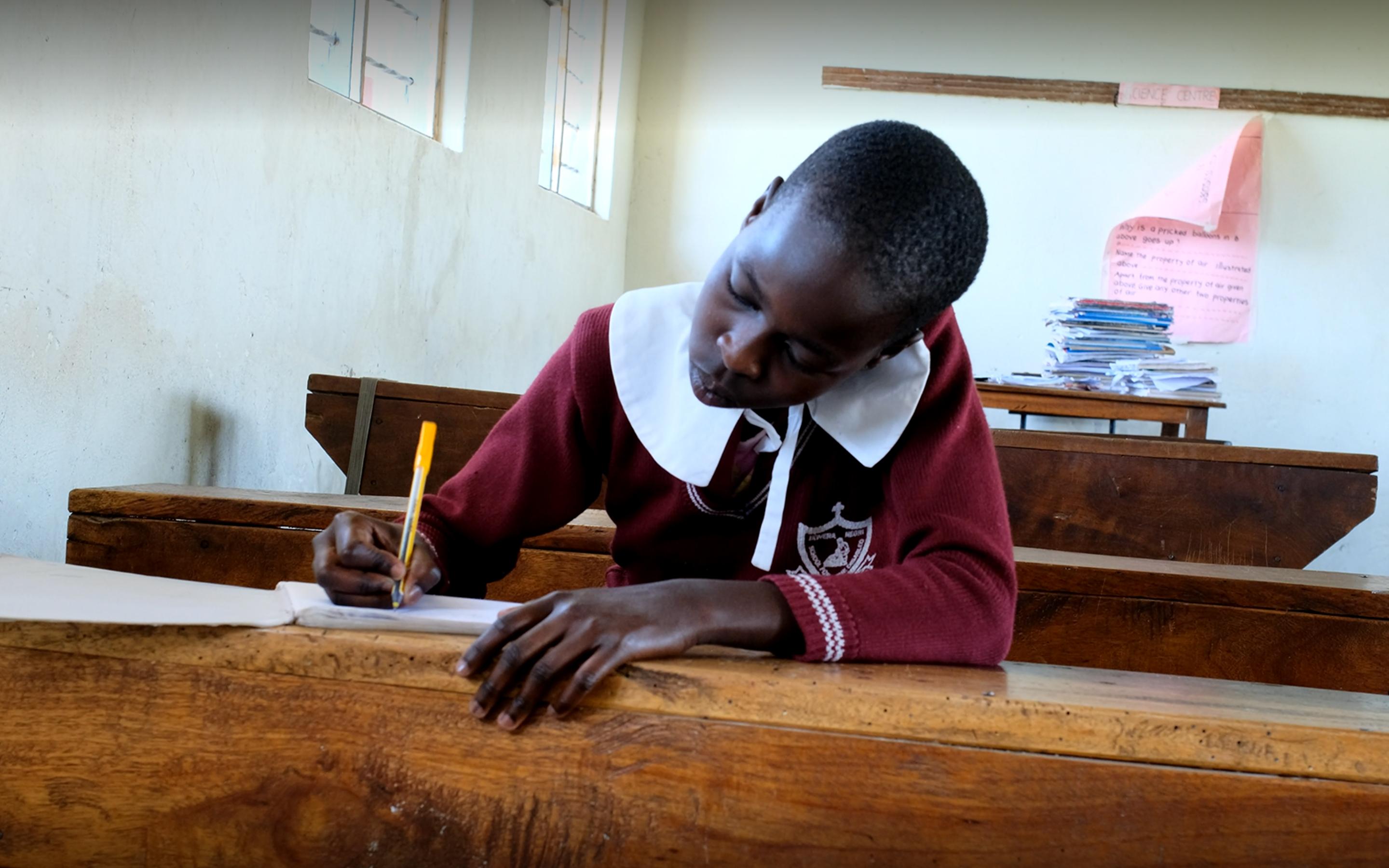
‘Safe menstrual hygiene is linked to educational opportunities’
In this akzente interview, Dr Cleophas Mugenyi (Commissioner for Basic Education) and Angella Nansubuga (Officer in the Gender Division) from Uganda’s Ministry of Education and Sports talk about hygiene education, stigmas and the role played by the Sanitation for Millions programme.
What has changed in Uganda’s schools as a result of the Sanitation for Millions programme?
Cleophas Mugenyi: The Ministry of Education and Sports has observed enormous improvements in awareness and behaviour, because so much has been done, and still is being done, to raise awareness and provide hygiene education. We work with teachers, people in school administration committees, parents’ associations and children. We have also got religious and cultural leaders on board to explain to them the special importance of menstrual hygiene.
Why is that so important?
Mugenyi: Girls often stay off school when they have their period. They then miss out on a lot of learnings. We make it clear to everyone that educated girls are an asset to their families and the nation. They must therefore be supported so that they can carry on learning when they have their period. And we have seen a lot of progress. Most schools in this country now have more girls than boys, and they drop out less frequently.
How high was the dropout rate for girls until now?
Mugenyi: In the past, between 30 to 60 per cent of girls would drop out of school. On average, girls miss two or three days of school a month when they have their period. This is due to poor or non-existent menstrual hygiene management mechanisms in schools, the stigma attached to menstruation and similar difficulties. However, the figures are not consistent – they vary from one region and district to another. But one thing is clear: safe menstrual hygiene is linked to equal educational opportunities.
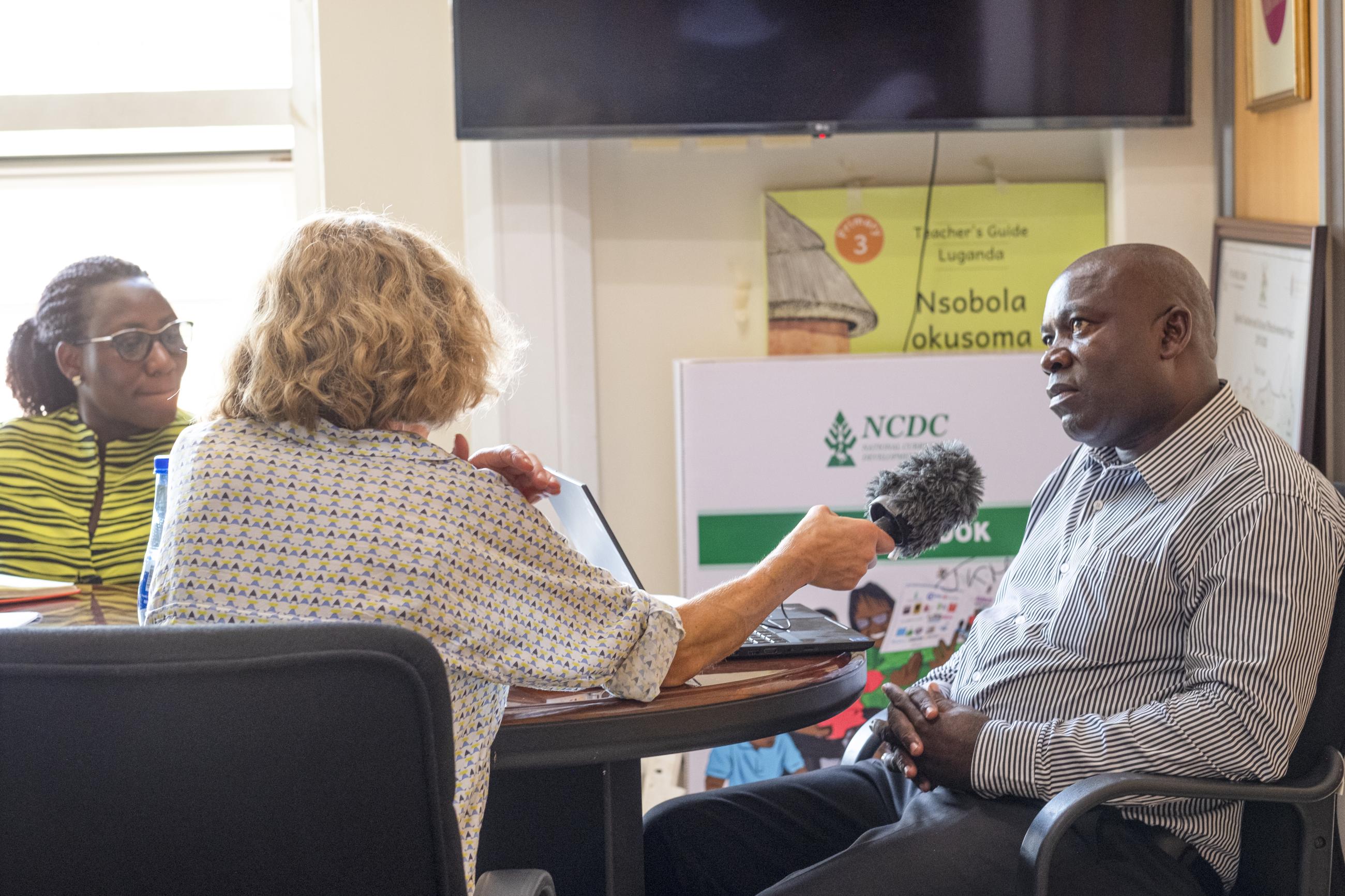
Is it particularly difficult for girls in rural areas?
Angella Nansubuga: Yes, negative social and cultural norms often play a major role in these areas. And access to clean water is limited. That makes it more difficult for girls and women to maintain their personal hygiene during menstruation. In the worst-case scenario it can lead to infections.
What exactly do you mean by negative cultural norms?
Nansubuga: In some parts of central Uganda for instance, girls have to sit on a stone all day when they are menstruating. They may only enter the house to sleep at night until their period is over. They cannot go to school during this time. They sometimes drop out of school because they have missed so much that they can no longer catch up.
Mugenyi: And until recently sanitary towels were only sold under the counter – if at all. Now girls can point to them. We want to ensure that there is no shame involved in buying sanitary towels. It should be as normal as buying chewing gum.
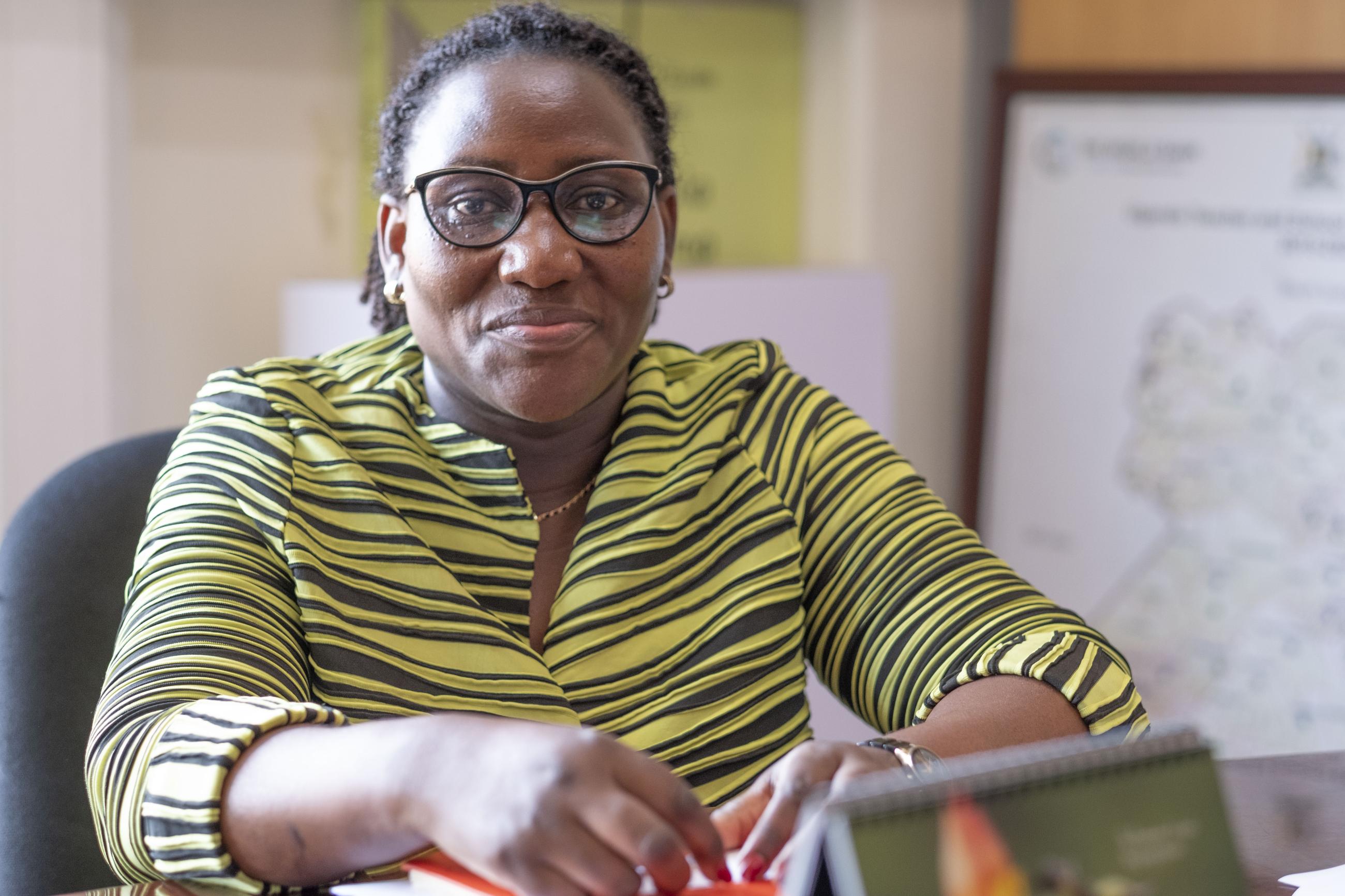
What else has changed in schools?
Mugenyi: The support from Sanitation for Millions has made it possible to build more and better washrooms in parts of northern Uganda and in the capital Kampala. And there are now more incinerators to burn used sanitary towels. If they are thrown into toilets, they quickly cause a blockage. That’s why special incinerators are important. It’s also more hygienic to burn them.
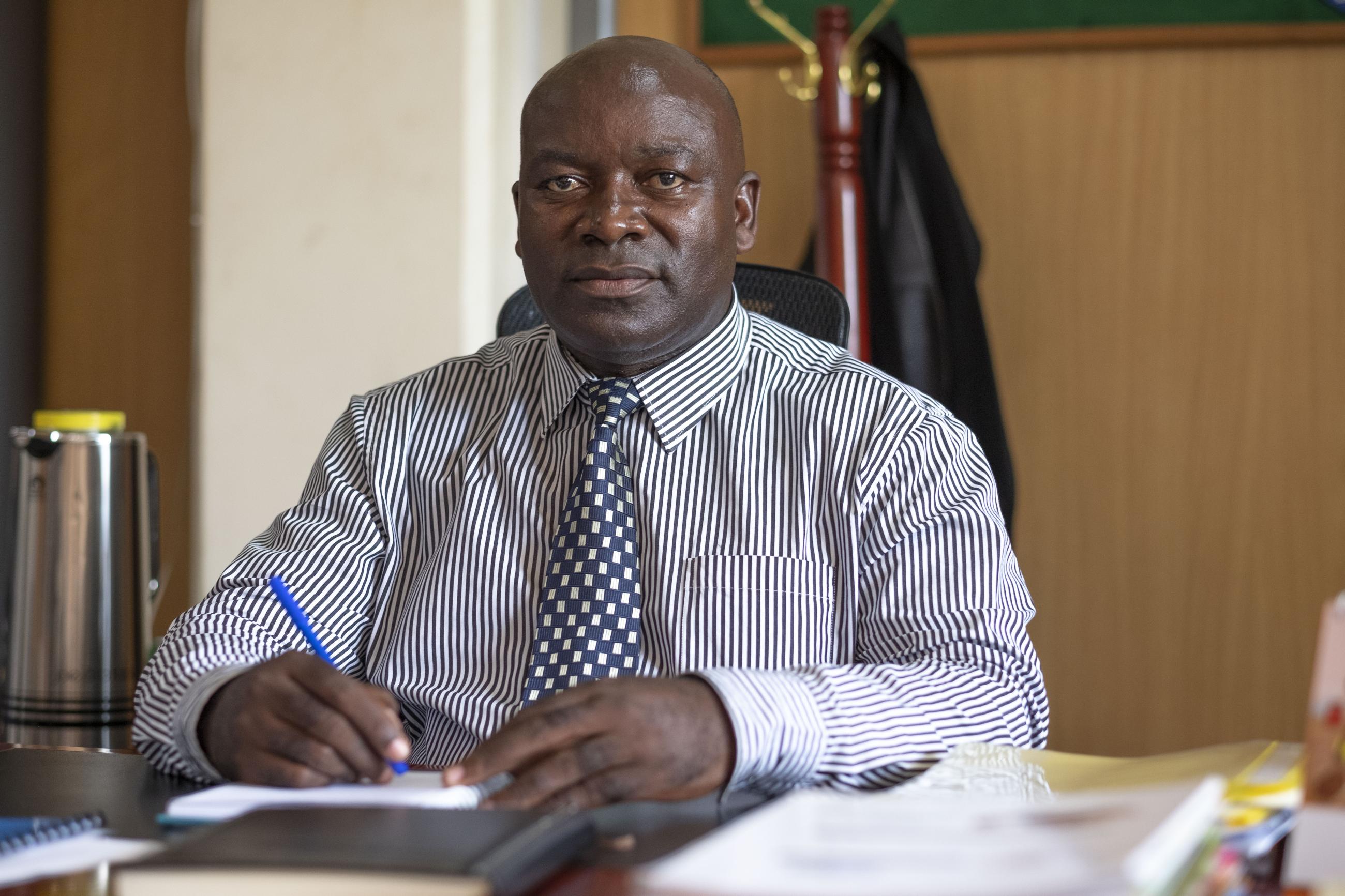
What are the next goals?
Mugenyi: Ideally, there should be separate toilets for boys and girls everywhere. The girls’ latrines or toilets should have a changing room, where they have basics, such as soap, sanitary towels and hand towels. But we still have a long way to go. And we still need more incineration facilities to dispose of used sanitary towels.
Nansubuga: Another challenge is that some schools have no women teachers. There is then no one the girls can go to for advice. And we still don’t have enough information materials, posters, charts and books in English and in local languages. So there is still a lot to do.
